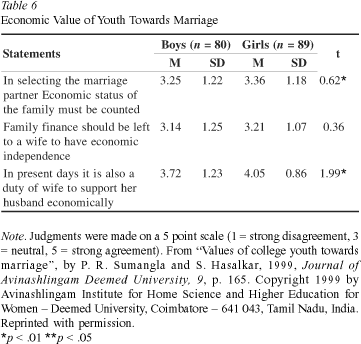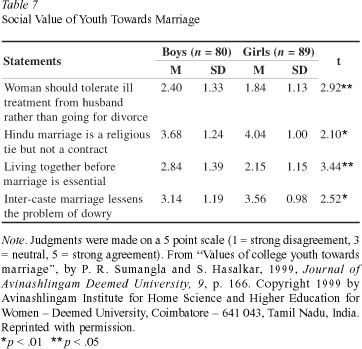Literature on family studies in India has grown to a large extent in the last two decades, although such studies are scattered. This article presents socio-demographic data on families in India aiming to provide bases for analyzing research, particularly in the area of family development. Indian families are classified as patrilineal and matrilineal according to the lineage or descent by father or mother. The family structure is conceptualized as the configuration of role, power, and status and relationships in the family which depends upon the families socio-economic background, family pattern, and extent of urbanization. Marriage practices are emphasized covering subjects such as marriage patterns, selection of marriage partner, age at marriage, age at consummation of marriage, marriage rituals, financial exchanges and divorce. In spite of urbanization and industrialization in the contemporary Indian society, the family institution continues to play a central role in the lives of people.
Indian families; family legislation; Indian constitution; family relations









